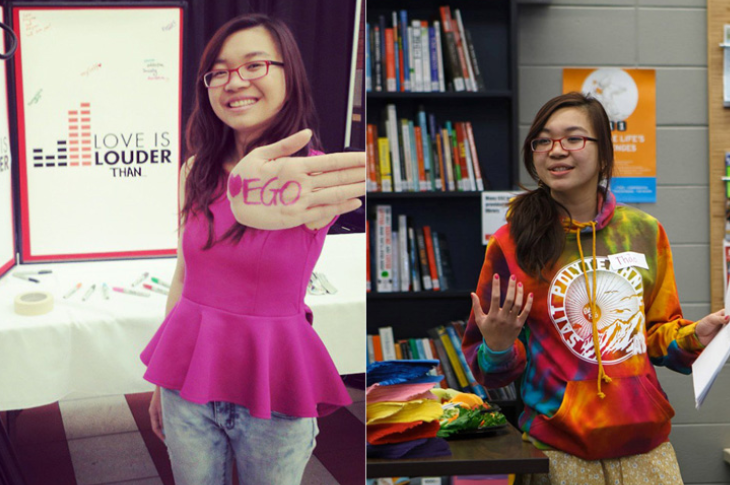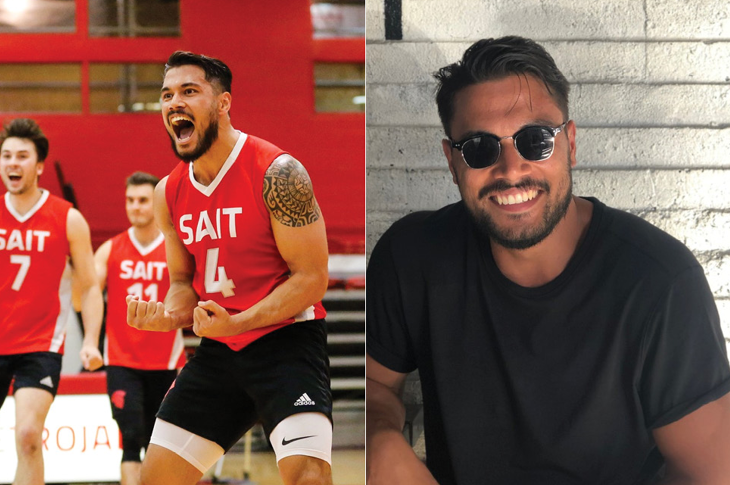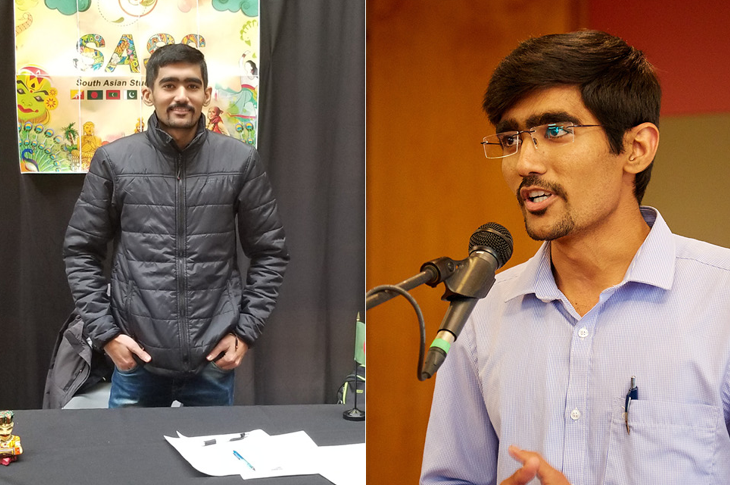Education goes beyond the classroom

Applied learning and cutting-edge curriculum sets graduates on a path for career success, but to get the most out of an international education at SAIT, students need to look beyond the books.
Participating in extra-curricular activities gives students not only a well-rounded post-secondary experience, but the skills gained through joining clubs, sports teams or SAIT’s student government can help beyond graduation.
For Thao Nguyen, volunteering with student clubs and sitting on the SAIT Student Association (Saitsa) not only helped her while at SAIT, but now in her career.
Nguyen, who graduated in 2014 with a diploma in business administration, uses the skills she gained through extra-curricular activities in her current work in marketing with the University of Calgary’s Graduate Student Association.
“For me, being involved in other opportunities outside of school was so important,” she says.
“As we all know, the job market is more competitive. The more I know, the better chance I have at building a career. Through volunteering with clubs and Saitsa, I learned skills like management and interpersonal skills that I wouldn’t just get from a book.”
Extra-curricular activities benefit beyond school
Nguyen enjoyed extra-curricular activities in Vietnam, so, when she moved to Canada and eventually attended SAIT, it was natural for her to continue. She created VietSAIT, a club for fellow Vietnamese students and then transformed her passion for multicultural activities and celebrations into the creation of SAIT Culture Link.
She would ultimately serve two years as the vice-president of student life for the student association, working on mental health initiatives and other activities to improve the lives for all students.
Taking part in campus life outside of the classroom will have a long-lasting effect, Nguyen says.
“As international students, the experience we get at SAIT doesn’t end when we graduate. Those relationships, we’ll have for our whole lives.”

Tyler Latu’ila came to SAIT specifically for the extra-curricular options.
The volleyball player from New Zealand was looking for a post-secondary that would allow him to continue on the courts, while getting an education.
But even his experience at SAIT went beyond books and competitions. As a Trojan, he participated in outreach programs and mental health initiatives and even got involved in Habitat for Humanity, helping build a house for the charity.
Latu’ila encourages fellow international students to do the same.
“It’s fun to get out and do those things, get involved in the community you’re living in,” he says.
Gain career-building skills outside of the classroom

Following the advice of his father to advocate for student issues had Yatendra Solanki getting involved in SAIT life from the moment he joined campus.
Solanki, who came to SAIT in 2018 from India, balanced his studies with roles as president of the South Asian Students Society, as well as a member of the Saitsa board of governors, the Calgary chapter of the Institute of Power Engineers and the Power Engineering Students’ Association.
“I like to be involved, to be in the community,” Solanki says.
For all his volunteering and work to improve the lives of all SAIT students, Solanki was awarded the 2020 President’s Medal, which recognizes those who make a difference at the school and in the community beyond.
Solanki said his work with Saitsa and other groups helped him enjoy his post-secondary experience, but will also help him now that he’s graduated.
“I learned a lot — communication and management skills, leadership. Those are things you can’t learn in the classroom, but they will help me in my career.”
With so many ways to get involved, it’s easy to enjoy a well-rounded education at SAIT.
And both Nguyen and Solanki recommend students get involved right from the start — especially because it can also help with an issue particular to international students: feeling homesick.
“There are great opportunities to meet people, get knowledge and it will help you handle the culture shock that most international students have when they first arrive,” says Nguyen.

Oki, Âba wathtech, Danit'ada, Tawnshi, Hello.
SAIT is located on the traditional territories of the Niitsitapi (Blackfoot) and the people of Treaty 7 which includes the Siksika, the Piikani, the Kainai, the Tsuut’ina and the Îyârhe Nakoda of Bearspaw, Chiniki and Goodstoney.
We are situated in an area the Blackfoot tribes traditionally called Moh’kinsstis, where the Bow River meets the Elbow River. We now call it the city of Calgary, which is also home to the Métis Nation of Alberta.